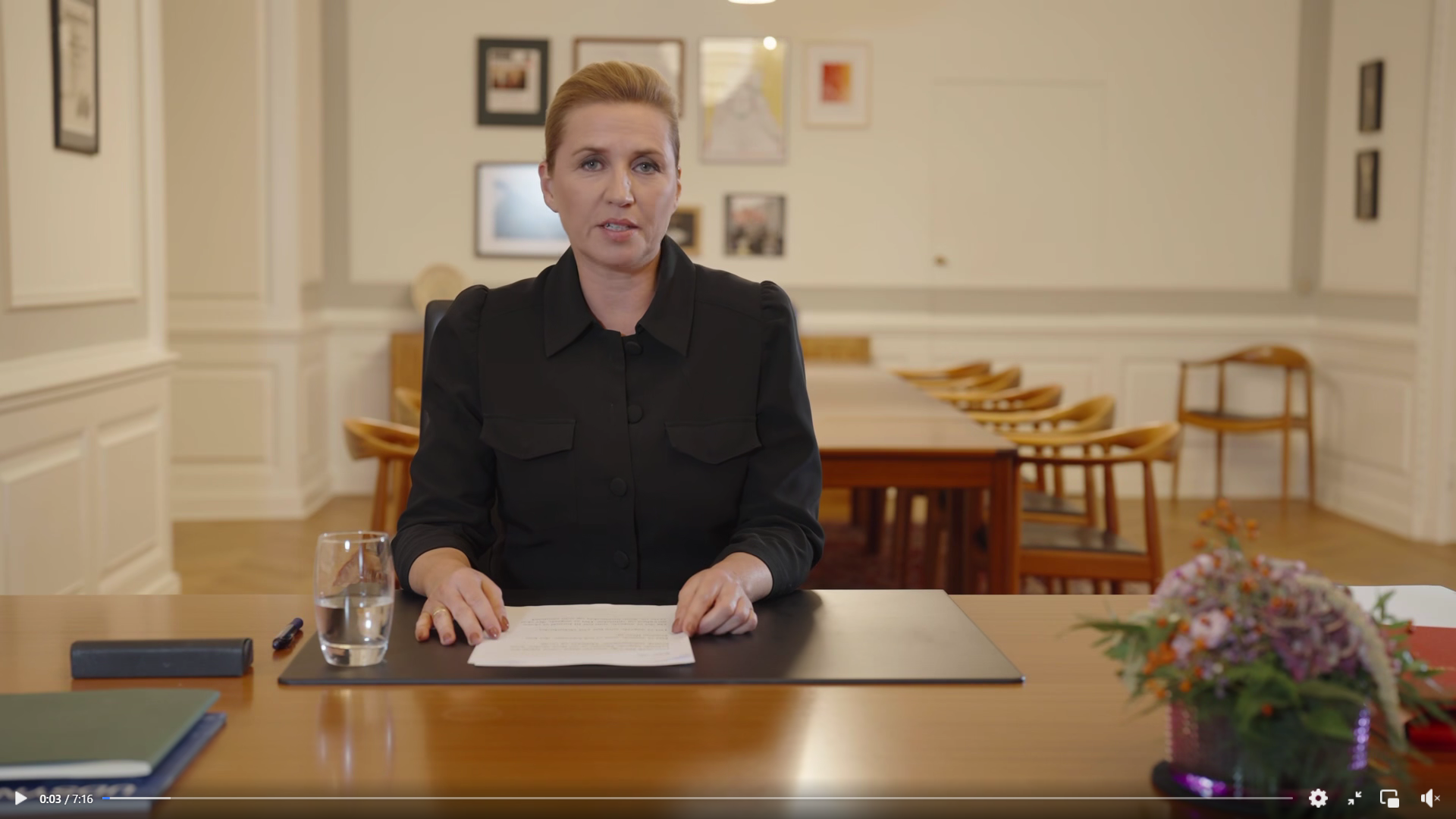Danish Prime Minister Mette Frederiksen warned on 25 September that the country should expect more “hybrid attacks” similar to recent incidents involving unidentified drones circling in national airspace.
“Denmark has in recent days been subjected to hybrid attacks. Drones have been seen in several places. Near critical infrastructure. Military and civilian,” Frederiksen said in a public address.
The Prime Minister described the violations as part of a broader pattern targeting Europe. “I think we will see more such cases… We see a certain pattern, and it doesn’t look good,” she added.
Frederiksen said that Danish authorities have not yet determined “who is behind the hybrid attacks on our airports and other critical infrastructure,” but pointed to Moscow’s responsibility.
“We can at least establish that there is primarily one country that poses a threat to Europe’s security – and that is Russia,” she said.
The incidents have prompted Denmark to raise its alert level and strengthen anti-drone defenses. “This means that in the coming time, both defense and police will be more present with anti-drone capacities around critical infrastructure,” Frederiksen explained.
Europe has experienced several weeks of concern over airspace violations involving Russian aircraft and drones. Estonia and Poland have called urgent NATO consultations after accusing Russia of separate airspace violation incidents.
Just hours after Frederiksen’s address, Aalborg airport in northern Denmark was closed for the second consecutive night due to suspected drone intrusion, though the suspicion was not confirmed.
The Danish leader emphasized that hybrid warfare differs from traditional conflict.
“Hybrid attacks are meant to confuse us and make us uncertain. From a cowardly enemy that does not reveal itself,” she stated. “One time it can be drones. Another time it can be cyber attacks. The third time disinformation. Influence on elections. Conspiracy theories online.”
Frederiksen added that Ukraine is sharing expertise in drone defense with Denmark. “If there is anyone who understands how to combat drones, it is our friends in Ukraine. Therefore, we are of course also in dialogue with them,” she said.
The Prime Minister has contacted multiple European leaders in recent days, including the German Chancellor, British Prime Minister, and prime ministers of Norway and Sweden, as well as NATO’s Secretary General. Denmark is now in dialogue with NATO allies about assistance in protecting Danish airspace.
Danish authorities earlier temporarily closed the country’s two largest airports after drones were spotted in the sky, calling it a “hybrid attack.” Similar incidents have been recorded at other Danish airports. On 22 September, drone intrusions also forced the closure of airports in Copenhagen and Oslo, causing flight cancellations and leaving thousands of passengers stranded in terminals.
Frederiksen concluded her address with a call for increased European defense spending, stating that “no European country can defend itself alone against Russia.”
Recent airspace violations escalate tensions
The announcement follows the pattern of the similar drone attacks near sensitive military installations, sightings in Denmark, Poland, Estonia, Romania over the several past weeks.
On the night of 10 September, Russian drones violated Poland’s airspace. Military forces shot down approximately four of 19 unmanned aircraft, Prime Minister Donald Tusk reported.
NATO Secretary General Mark Rutte announced the launch of “Eastern Guard” operation on the Alliance’s eastern flank on 12 September, aimed at “eliminating specific threats related to drone use.” The operation covers Poland and Romania.
President Andrzej Duda signed a resolution on 14 September, authorizing NATO member state military presence on Polish territory within the Eastern Guard framework.
Romania declared air alert in northern regions on 13 September due to strike drone threats. Two F-16 fighters scrambled at 6 pm, intercepting a Russian Shahed drone over the Danube around 7 pm. The Defense Ministry clarified the drone did not fly over populated areas and posed no immediate threat to civilians.
Ukrainian President Zelenskyy responded to the incident, saying the Russian drone remained over Romania for 50 minutes.
Three Russian fighters spent 12 minutes in Estonian airspace on 19 September. Foreign Minister Margus Tsahkna called this “a violation of territorial integrity and UN Charter principles that require refraining from the threat of force.”
An emergency UN Security Council session convened in New York on 22 September regarding Russian aircraft violations of Estonian airspace, with Ukrainian Foreign Minister Andriy Sybiha present. Sybiha emphasized that similar threats require immediate neutralization.
The North Atlantic Council met on 23 September under Article 4 of the Washington Treaty to consult and condemn Russia’s 19 September airspace violation of Estonia.




